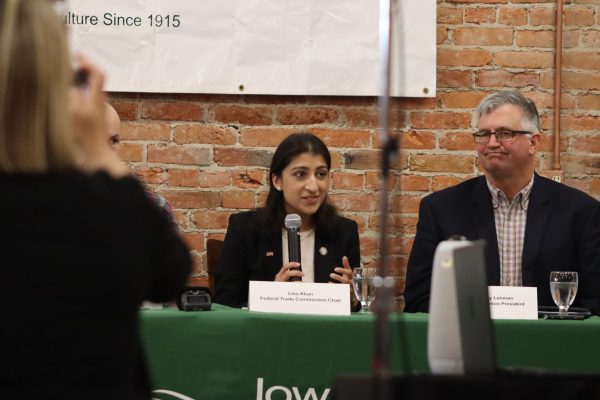Student Counseling Services works to ameliorate staffing shortage
March 27, 2008
Counselors at Iowa State’s Student Counseling Services work diligently to meet the needs of the student body, despite being understaffed.
Marty Martinez, staff psychologist and outreach coordinator for Student Counseling Services, said SCS has been trying new ways to combat is problem of understaffing.
“There is a recommendation of how many counselors to have per thousand students, and we don’t meet that recommendation,” Martinez said. “The hard work of the staff really makes up for it.”
As of late, rumors of extended waiting lists have surfaced among students, but Martinez labeled them as false or misunderstood.
He said the current staffing issues have stemmed from the field of counseling being historically underfunded and understaffed.
“People misinterpret a waiting list to mean, ‘I can’t get it in.’ Anyone can always come in and be seen immediately,” Martinez said.
“We always have someone available for crisis counseling.”
Martinez said a common source of the misperception of a waiting list is the center’s standard procedure – students are given an initial screening on their first visit and are then scheduled to return up to a week later, which some think of as being put on a waiting list.
With proper funding and staff, Martinez said, the center would never need to use a waiting list. SCS currently employs eight Ph.D.-level psychologists, three master’s-level therapists, three psychology interns and 14 practicum students, which still doesn’t meet recommendations set by the International Association of Counseling Services.
The IACS recommends that counseling services have at least one staff member per 1,000 to 1,500 students. That means 17 to 26 professionals are recommended for a university the size of Iowa State. SCS falls short of the low mark, with just 11 professionals – counselors with master’s degrees or Ph.D.s – on staff.
The practice of group counseling helps the center use its staff efficiently, helping combat the shortfall.
“Instead of waiting for an individual counselor to be open, we started involving students in group counseling, which for many students is actually the best type of counseling – because not only do they have two counselors in the room, they begin to work on their confidence, communication and social skills and they start to build relationships with others,” Martinez said.
Unlike the Thielen Student Health Center’s, Student Counseling Services provides free services, so the center’s funding must come from the state and often varies from budget to budget.
Martinez said mental health care has always suffered from a lack of funding because there is so little public knowledge about and awareness of mental health issues.
State Sen. Jeff Danielson, D-Dist. 10, said now would be a good time to put more focus on mental health care in current health care legislation.
“The larger problem is getting over the stigma of mental health,” said Danielson, who also suggested that insurance should cover more mental health care costs.
“Counseling should not be a luxury,” Martinez said.
“Everyone should have access, regardless of their income.”
















